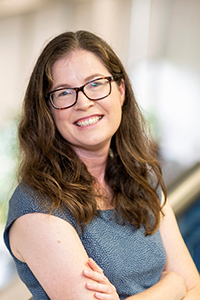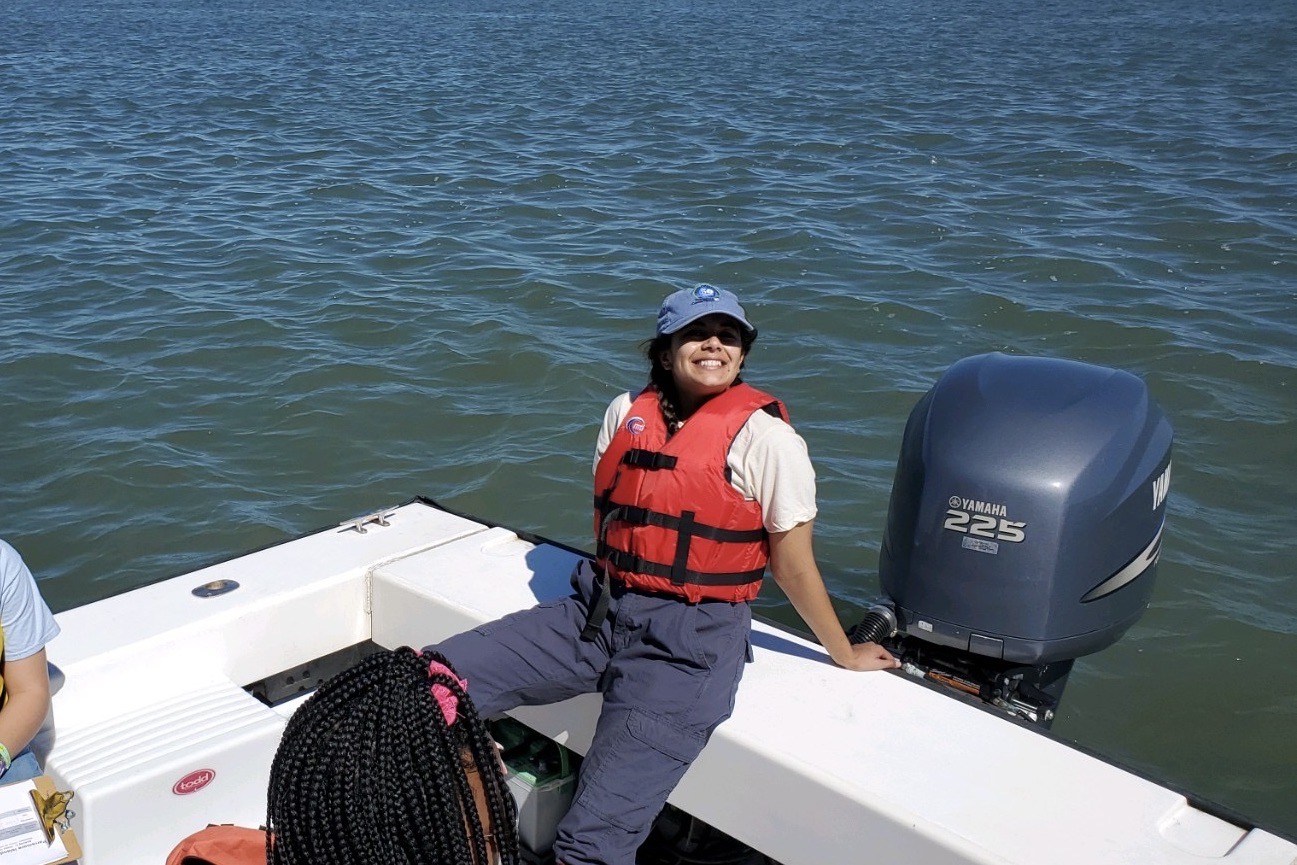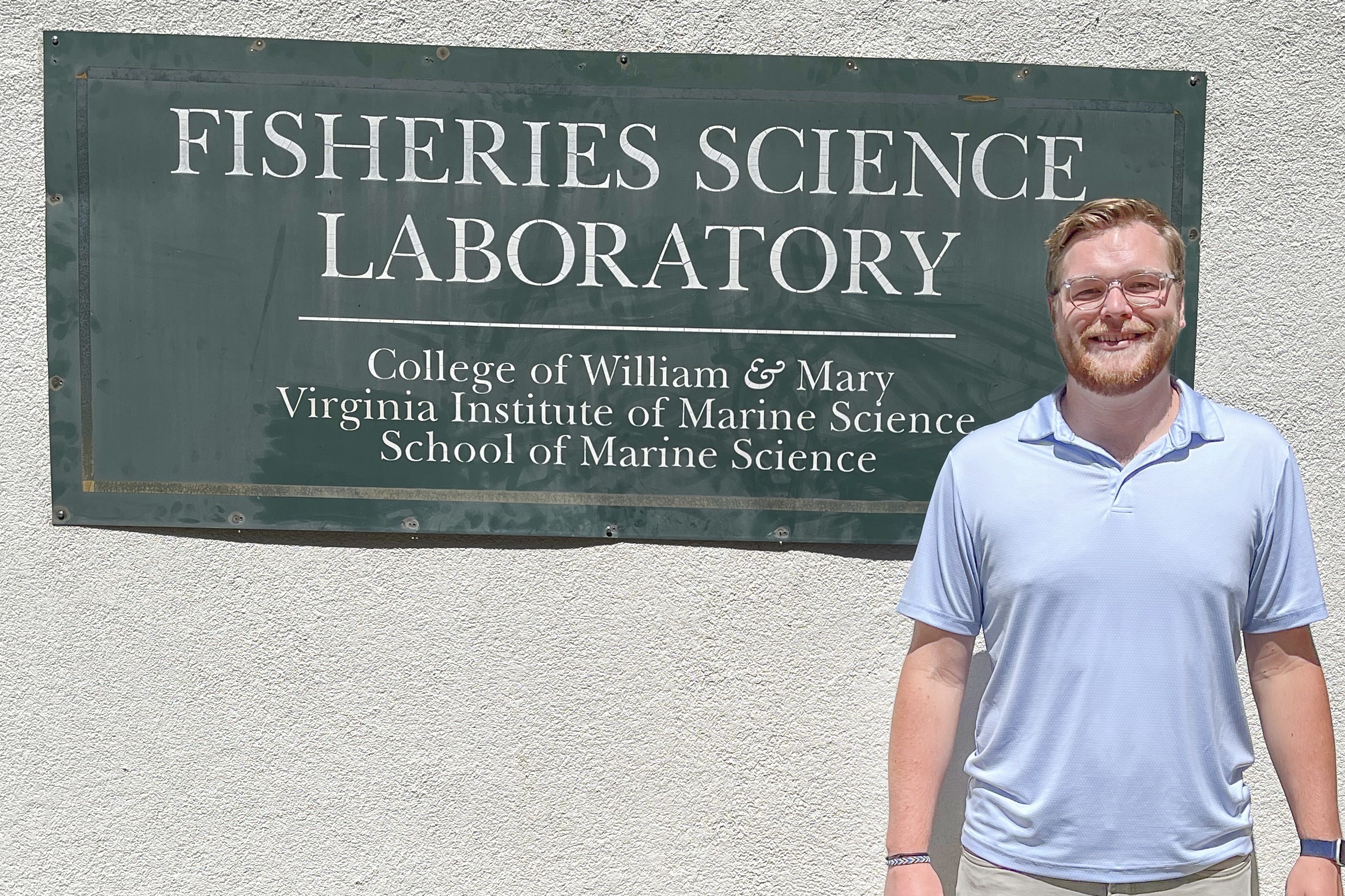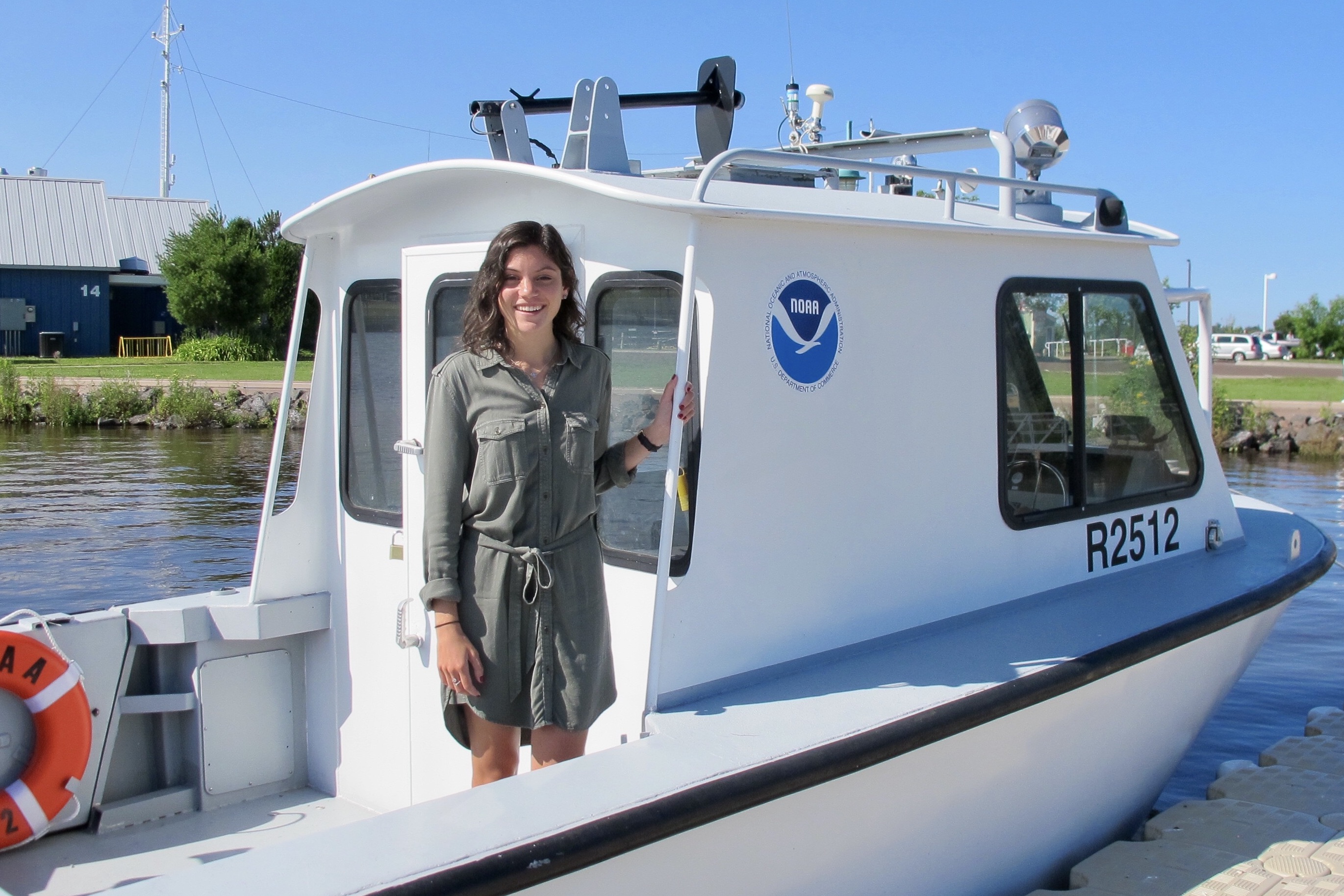Professional M.A. in Marine Science
Program Overview
Through interdisciplinary coursework and training, the professional M.A. in Marine Science prepares students for careers in areas like policy, business, education, outreach, and more. Students will gain the knowledge, skills, and experience needed to translate, integrate and apply marine science across a broad range of career paths and societal concerns.
This up to two-year (32 credit) degree program combines traditional advanced coursework in marine science with professional skill building through an internship and capstone project. This degree prepares students to be leaders in their chosen area(s) of application and have the scientific knowledge and interdisciplinary skills needed to meet real-world demands.
Interested in a more research-focused degree? Check out our M.S. & Ph.D. programs!
Program Curriculum
The M.A. program curriculum provides students with the foundational knowledge and skills they need as marine science professionals. Required courses introduce students to concepts and principles relating to biological, chemical, geo-physical, and anthropogenic processes of marine and coastal systems. Coursework also provides students with a suite of statistical and numerical skills that are necessary tools in marine science research and analysis. The flexibility of the program allows students to fulfill degree requirements by completing coursework in areas of individual interests, such as in policy, law, and science communication. Students will learn responsible conduct of science, public expectations for scientists, and the application of science to societal issues.
- 13-15 credit hours of Core courses
- 7-9 credit hours of Elective courses
- 4 credits of Internship
- 6 credit hours of Capstone
The M.A. program director handles academic advising for all M.A. students. This faculty member supports students in identifying course requirements, professional development experiences, capstone topics, and internship opportunities.
As a part of William & Mary, the Batten School of Coastal & Marine Sciences is connected with the university's highly ranked schools in Arts & Sciences, Business, Education, Law, and Computing, Data Sciences, and Physics. Our students can access courses, resources, and networks across these academic interests to enhance their graduate experience. These university-wide resources provide students who pursue the M.A. with a comprehensive academic curriculum and allow them to pursue a wide range of professional and career development opportunities.
Capstone
For the capstone project course, each student works with a faculty member at the Batten School and an external professional advisor to design and conduct a project where marine science knowledge is used to address an area, problem, or issue of consequence at the interface of science and environmental or natural resource management, policy, law, business, education, or other areas. Batten School faculty have expertise in a broad range of marine science disciplines and can advise in areas such as aquaculture, habitat conservation and restoration, fisheries management, pollution issues, water quality, effects of climate change on marine ecosystems, coastal flooding resilience, and more. M.A. students will be matched with an advisor based on their interests and background. Faculty research areas can be viewed here.
Internship
Students complete an internship experience, and will have the opportunity to work at an organization that aligns with their employment area of interest. These organizations may include universities, government agencies, non-profit organizations, or business and industry. We are dedicated to the experiential success of each of our students and will assist in securing internships with host organizations. Potential internship opportunities exist within Batten School & VIMS units such as the Aquaculture, Genetics and Breeding Technology Center; Marine Advisory Program; Center for Coastal Resource Management; Office of Research & Advisory Service; Eastern Shore Laboratory; and with our on-campus federal partners, the Chesapeake Bay National Estuarine Research Reserve, and Virginia Sea Grant. Students are also able to seek out and obtain their own unique internship experience, with the approval of the program director. Previous external student internships include The Nature Conservancy, the Responsible Offshore Science Alliance, the Coastal States Organization, and more.
Hear From Our Students
|
|
|
“The professional M.A. program has been a good transition from undergraduate to the professional world because there are such a wide range of opportunities here to build your professional toolbox.” - Will Shoup, M.A. ‘23 |
|
“I wanted a degree where I could continue to build a strong scientific foundation while also building professional skills and experience. This program gave me pursue both of my goals and become part of a wonderful, supportive community.” - Kacey Hirshfeld, M.A. ‘23 |
M.A. Program Director

Dr. Molly Mitchell, M.S. '03, Ph.D. '18, serves as the M.A. Program Director. Dr. Mitchell is an assistant professor at the Batten School & VIMS and works in the Wetlands program in the Center for Coastal Resources Management (CCRM). Her focus is on the intersection of sea-level rise and human use of the coastal zone, with consideration for impacts to natural resources and the potential for adaptation. Her research is meant to be applied by planners on all levels (local, state, federal, etc.), across resources (marshes, roads, buildings, etc.), and in collaboration with representatives from many different groups to help translate current scientific findings into practical recommendations.
Dr. Mitchell is a proud William & Mary alumna and is excited to bring her expertise in translating, integrating, and applying marine science in a variety of fields to the role of M.A. program director.
M.A. Admissions
The Master of Arts in Marine Science program is open to traditional and non-traditional students. The prospective student must have a B.A. or B.S. from an accredited institution and be able to demonstrate preparation for graduate-level courses in science and the other requirements of the program.
Tuition & Financial Aid
Tuition information for William & Mary's Batten School of Coastal & Marine Sciences can be found on William & Mary's website. VIMS recognizes the importance of supporting students in their study of marine science and has some tuition scholarships, fellowships, teaching assistantships, and work-study opportunities available for M.A. program students that help to reduce program costs. Additional information on funding opportunities will be available following admissions decisions.
Contact Information
Molly Mitchell, M.A. Program Director and Assistant ProfessorEmail | molly@vims.edu
Phone | (804) 684-7931




